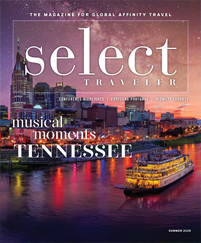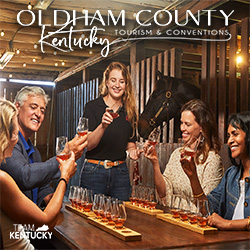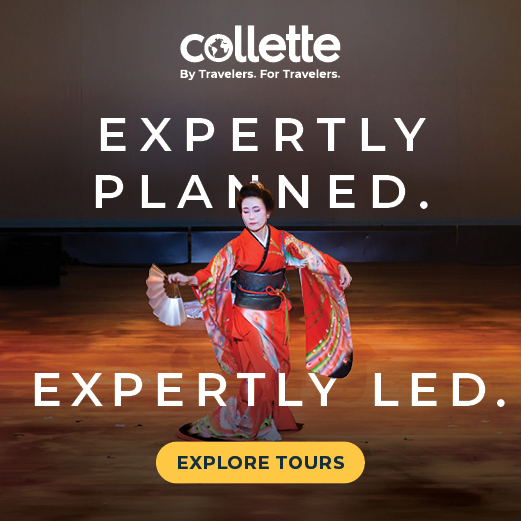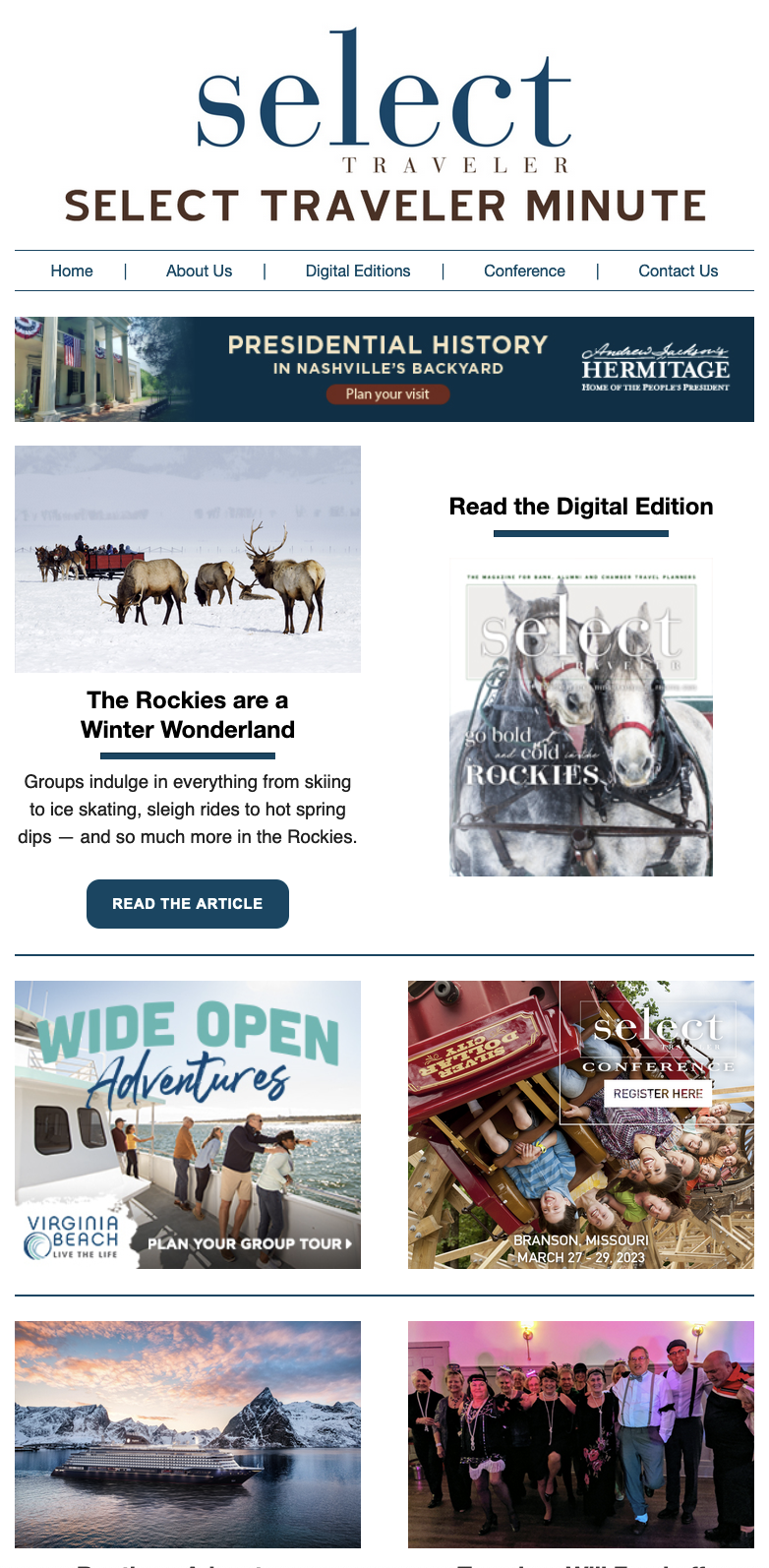Nashville definitely is not a been-there-done-that city. The vitality of its entertainment scene means you always can open new doors for your clients.
People all over town are eager to share the magic. Take Jay McDowell at the Musicians Hall of Fame, for instance. He’s a longtime musician who plays upright bass. His title at the museum is multimedia archivist, but it easily could be storyteller.
The Musicians Hall of Fame salutes studio musicians, both in Nashville and in other powerhouse music centers such as Muscle Shoals, Alabama; Detroit; Memphis; and Los Angeles. With prior arrangement, McDowell will escort a group, and he makes each tour one-of-a-kind.
“I don’t have a script,” he said, knowing he can tap into personal experiences, from playing sessions for artists such as Vince Gill, Marty Stuart, the Black Crowes and Tommy Roe, to nights onstage in the rockabilly group BR-549. “I feel it out from the group. If they’re into nostalgia, I’ll stay with Motown and Stax Records. If they want, I’ll spend more time in the Grammy Gallery. I have stories.”
Where Hits Were Born
After the Musicians Hall of Fame piques your interest about how records are made, check out a real recording studio.
RCA Studio B probably is Nashville’s best known historic studio. There’s an aura here, perhaps because 35,000 songs, 1,000 top 10 hits and 40 million-selling songs flowed from it. You’ll recognize the artists who recorded there: legends such as Eddy Arnold, Waylon Jennings, Dolly Parton, Jim Reeves, Willie Nelson, the Everly Brothers, Roy Orbison, and that fellow from Memphis named Elvis.
Access to RCA Studio B is an add-on ticket from a visit to the Country Music Hall of Fame and Museum, itself an ever-renewing attraction. Just opened for a three-year run through 2025 is a major exhibition called “Western Edge: The Roots and Reverberations of Los Angeles Country-Rock.” Learn about the glitz and impact of the Byrds, Emmylou Harris, Linda Ronstadt, Dwight Yoakam and others.
After visiting the historic site, the next step is experiencing a modern recording studio in action. That’s possible at Imagine Recording, which uses the historic Sound Stage Studios on Music Row. More than 500 No. 1 hits have been recorded here.
During a 90-minute visit, your group will be in the studio while musicians and a Nashville songwriter record a new song. You may meet Steve Fishell, the company founder and a steel guitar session player for stars such as Emmylou Harris, John Prine and Dolly Parton. The entertainers will record a second song, and engineers will send you a mixed track of that number.
Writers’ Rooms
Singer Lacy J. Dalton had a hit with “16th Avenue,” a song that put Nashville songwriters on the pedestal where they rightfully belong, and Nashville makes it easy to encounter songwriters in their natural setting — behind a microphone.
The Bluebird Cafe is the most famous club that celebrates songwriters, but it is small and in high demand. Therefore, knowing about alternatives is useful.
“The Bluebird Cafe is the ultimate venue for songwriters and those who want to listen to our words and music,” said singer/songwriter Les Kerr. “Nashville is home to other spots that regularly feature original music, as well, including the Commodore Grille and the Millennium Maxwell House Hotel.”
Yet another songwriter spot is the Listening Room Cafe, not far from Music Row and just blocks from Lower Broadway’s honky tonk scene. The club was born in 2006 as a songwriter’s performance venue, and songwriters and fans have followed it through four moves.
There often are midday shows, and most evenings offer two acts. The club is modest in size, and its “be quiet during performances” policy admonishes everyone to respect whomever is on stage. “Keep conversation to a whisper” is the counsel.
A Legendary Stage
Of course, the Grand Ole Opry has Nashville’s most famous stage, and it’s possible to gain some special access. The historic show is creeping up on its 100th year of broadcast entertainment in 2025.
The daytime “Women of Country” tour is a 45-minute backstage visit to dressing rooms with names such as “Glitz and Glamour” and “Honky-Tonk Angels.” It highlights stars such as Dolly Parton, Carrie Underwood and Reba McEntire and includes a mimosa for an extra celebratory touch.
A supplement to an Opry performance is the “Circle Room Pre-Show” tour. It includes drinks, light bites and a commemorative photo in the Circle Room Lounge for one hour before the show and through the end of intermission.
Honky Tonk Central
Nashville’s Lower Broadway honky-tonk district stands in stark contrast to the assigned seating and scheduled-performance punctuality of the Opry. This is a place to let your clients roam and sample music at numerous clubs that butt up against one another and entice patrons to enter.
Some big clubs carry A-list entertainers’ names, but don’t expect to see those stars. Among the tried-and-true honky tonks are places such as Tootsie’s Orchid Lounge Legends Corner, Layla’s, the Stage and Robert’s Western World. All have live country music, cold beer and plenty of volume.
Robert’s Western World offers one of Nashville’s culinary oddities. It is the Recession Special, which dates to the economic crunch of 2008, and provides a fried bologna sandwich with lettuce and tomato on Texas toast, chips, a mini-Moon Pie and a cold Pabst Blue Ribbon beer for $6 — tax included. Remember to tip your server and the band.
Memorable Hotels
A memorable Nashville tour warrants distinctive lodging, and the choice of hotels has expanded dramatically in recent years.
The Union Station Hotel, a few blocks away from the hubbub of Lower Broadway, is a castle-like historic destination. It became a Nashville landmark in 1900 when it opened as one of America’s grand railroad terminals. Every room is different, and its 65-foot-high barrel-vaulted ceiling accented with Tiffany-style stained glass is stunning.
The modern Omni Nashville Hotel is closer to Lower Broad and has the distinction of being connected to the Country Music Hall of Fame and Museum. It is next door to the Bridgestone Arena, site of many major concerts, as well as home to the Nashville Predators hockey team.
The five-star Hermitage Hotel is another downtown historic property. This sedate hotel opened in 1910 and played a key role in the fight over women’s suffrage. (Tennessee was the deciding state for the 19th Amendment.) It is within easy walking distance of attractions such as the Ryman Auditorium and the Musicians Hall of Fame.
visitmusiccity.com









